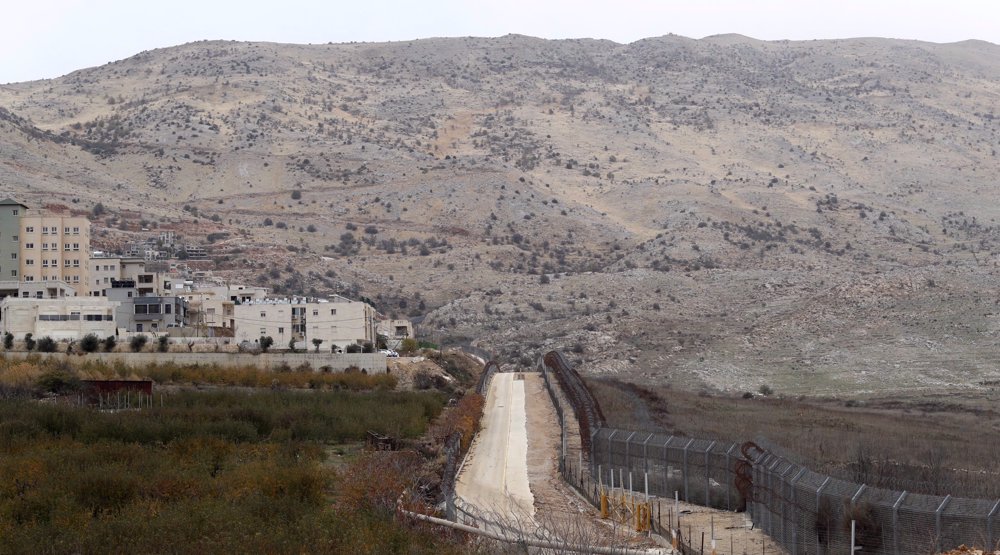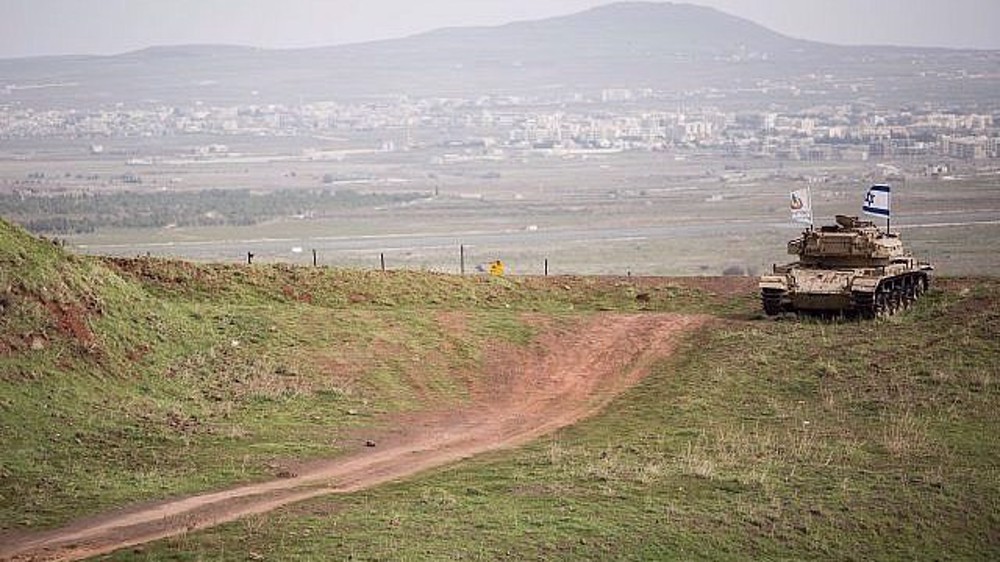Hamas: Israeli settlement plan in occupied Golan ‘new form of aggression against Arabs’
Palestinian resistance movement Hamas has blasted Israel’s latest settlement plans in the occupied Golan Heights as a new form of aggression against Arab people.
Hazem Qassem, Hamas' spokesman, said on Tuesday that the Israeli regime’s approval of settlement projects to double the number of settlers in the occupied Syrian Golan is a “new aggression against Arab land and rights, and an extension of its aggression" against Palestine and Palestinians.
“These settlement projects expose once again the arrogant behavior of the occupation and its expansionist policy in the region, disregarding all international laws and resolutions,” he noted.
Hamas' spokesman underlined that the "settlement plan … will not succeed in changing the historical facts, nor the identity of the Arab land, and the rights of the Palestinian nation are the fixed constant, whereas [the existence of] the Zionist settlers, who are foreign to the Arab land, will end."
Qassem said the Israeli aggression against the Palestinian and Arab land "requires an escalation by the masses of our Arab and Islamic nation and all its forces to resist this Zionist project and to put an end to its arrogance in the region."
Earlier in the day, the Arab League warned Israel over its settlement plans in the occupied Golan Heights, saying Israel must stop its attempts to change the demographic make-up and the legal status of the territory.
The Tel Aviv regime approved a one-billion-shekel plan on Sunday to double the number of Israeli settlers in the occupied Golan Heights, four decades after the occupying regime annexed the territory captured from Syria.
Israeli Prime Minister Naftali Bennett said two new neighborhoods are to be built in the town of Katzrin plus two new settlements, named Asif and Matar, adding that the plan aimed to build a total of 7,300 settler units in the region over a five-year period.
The plan will bring roughly 23,000 new Israeli settlers to the occupied region.
Syria itself condemned the Israeli plan on Monday, describing it as a “dangerous and unprecedented escalation.”
In 1967, Israel waged a full-scale war against Arab territories, during which it occupied a large swathe of Golan and annexed it four years later, a move never recognized by the international community.
In 1973, another war broke out and a year later, a UN-brokered ceasefire came into force, according to which Tel Aviv and Damascus agreed to separate their troops and create a buffer zone in the Heights.
Israel has over the past decades built dozens of settlements in the Golan Heights in defiance of international calls for the regime to stop its illegal construction activities.
Syria has repeatedly reaffirmed its sovereignty over the Golan Heights, saying the territory must be completely restored to its control, while the United Nations, for its part, has time and again emphasized Syria's sovereignty over the territory.
Hamas and Islamic Jihad delegations meet in Doha
UN rapporteur: Israel engaged in 'ethnic cleansing' in West Bank
French MPs adopt resolution, calling for seizure of Russian assets
Israel jets bomb Damascus outskirts as tanks advance in Quneitra
UN Security Council meeting on Iran ‘blatant political maneuver’: Envoy
US imposes new sanctions day after Trump's letter delivered to Iran
US activists denounce Trump for using 'Palestinian' as slur
Unilateral sanctions hinder Iranian women’s empowerment, prosperity: Experts












 This makes it easy to access the Press TV website
This makes it easy to access the Press TV website